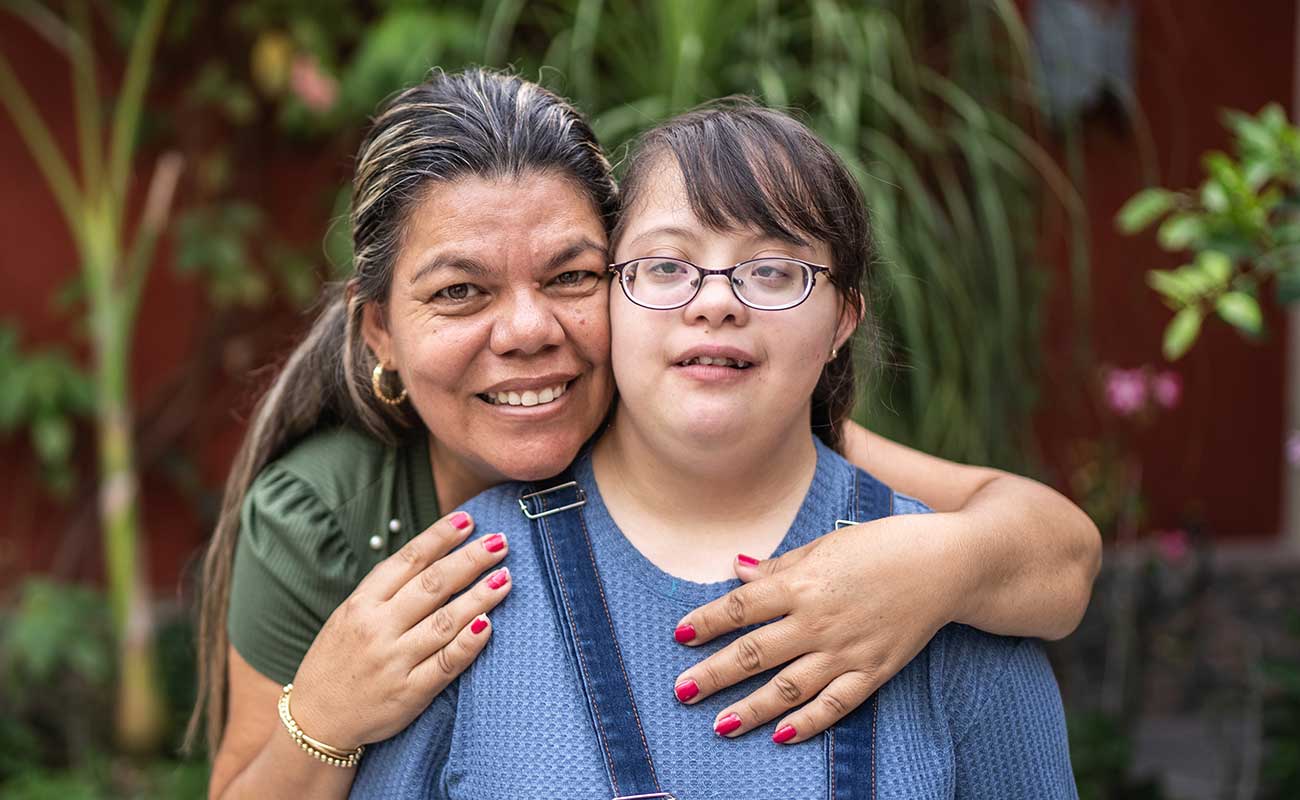Supporting clinical and health services research aligned with our mission and vision.
In August 2021, the Dalio Center for Health Justice launched an annual Health Justice Research Grant program, in partnership with Weill Cornell Medicine and Columbia Vagelos College of Physicians and Surgeons. This grant program funds innovative research that directly advances efforts to reduce health inequities and disparities.
Six health equity grants were selected in the inaugural cohort of grantees. Their project and progress are featured here.
Chronic kidney disease (CKD) and kidney failure disproportionately affects Black, Hispanic, Asian, American Indian, and Alaska Native individuals, as well as those with low socioeconomic status. Early CKD detection and initiation of evidence-based therapies is crucial to prevent progression to kidney failure requiring dialysis. Since receiving the 2021 Health Justice Research Grant and the last update in 2022, a team of nephrologists, informaticists, and epidemiologists has created an electronic health record-based cohort of patients with CKD seen in the NewYork-Presbyterian/Weill Cornell Medical Center system. Among over 25,000 patients with CKD Stage 3, the team found significant racial and ethnic disparities in blood pressure and diabetes control. Similarly, there were substantial socioeconomic disparities in blood pressure and diabetes control by census tract-level Social Deprivation Index. Use of CKD testing and evidence-based therapies to delay progression of CKD was suboptimal and not concordant with guidelines.
These findings have informed a primary care-focused intervention of a clinical decision support (CDS) tool within the electronic health record. The team is partnering with the Weill Cornell Shared Services Research Team to develop the CKD CDS and is testing its acceptability, effectiveness, and equity in improving evidence-based prescribing.

Sri Lekha Tummalapalli,
MD, MBA, MAS
WCMC

Jeffrey Silberzweig, MD
WCMC

Will Simmons, MPH
WCMC

Jonathan T. Lin, MD
WCMC

Sumit Mohan, MD, MPH
CUIMC

Deirdre Sawinski, MD
WCMC
Lung cancer is the leading cause of cancer-related death in the U.S., although screening for lung cancer with a low-dose CT scan can save lives by catching lung cancer early. Unfortunately, participation in lung cancer screening (LCS) is much lower than for other screening exams, such as breast and colon cancer screening, and there are significant racial inequities regarding LCS rates, as well as diagnosis, staging, treatment, and outcomes. Screening recommendation and referral by primary care providers are important determinants of screening uptake among patients. IBREATHE is focused on implementing strategies to mitigate barriers to LCS at the provider-level, and to some extent patient- and organization-levels, and facilitate increased screening rates among eligible high-risk adults, with the long-term goal of improving early detection and outcome disparities.
Since the last update in 2022, the team conducted qualitative group interviews with primary care providers (PCPs) from around the country to understand PCPs’ most prominent barriers to implementing guideline concordant lung cancer screening in their daily practice, particularly regarding minoritized patients. A thematic framework encompassing PCPs’ top barriers to LCS was generated through qualitative coding and analysis using Grounded Theory. The team then applied the Behavior Change Wheel to identify behavioral targets with regard to LCS and factors that influence uptake of LCS, then specified policy categories, intervention functions, behavior change techniques, and implementation strategies that would be affordable, practical, effective, acceptable, safe, and equitable. Strategies were assessed for appropriateness, acceptability, relevance, and feasibility through one-on-one qualitative interviews with healthcare worker key informants and patient stakeholders. The intervention framework generated from qualitative data analysis informed the final multicomponent implementation strategy for the pilot. Results of the pilot will be available in late 2024.

Lauren K. Groner, DO
WCMC

Stephen Peterson, MD
WCMC

Erica Phillips, MD
WCMC

Rishikesh Dalal, MD
Community Healthcare Network

Rulla Tamimi, ScD
WCMC

Nathalie Moise, MD
CUIMC

Bradley Pua, MD
WCMC
The team is focused on collecting data that will provide a local understanding of disparities in treatment for people who inject drugs. The overall goal is to enable developing intervention at NewYork-Presbyterian that will improve care for people who inject drugs hospitalized with serious infections. As of December 2023, the team has completed qualitative interviews with 22 healthcare providers at NewYork-Presbyterian/Columbia University Irving Medical Center, NewYork-Presbyterian/Weill Cornell Medical Center, NewYork-Presbyterian Allen Hospital, NewYork-Presbyterian Lower Manhattan Hospital, and NewYork-Presbyterian Brooklyn Methodist Hospital. Interviews began in January 2023 and have continued through October 2023. The team analyzed these interviews through coding and thematic analysis. An abstract using data from these interviews has been accepted for presentation at the 2024 American Society of Addiction Medicine conference.
Using data from qualitative interviews, the team designed two surveys related to Serious Injected-Related Infections. One survey was conducted among internal medicine residents at NewYork-Presbyterian. Participants were asked about their comfort level caring for discharging patients who inject drugs and have serious infections. Results of this survey have been presented at Infectious Diseases Society of America’s IDWeek and will be reported to internal medicine program directors. In November 2023, the team launched a second survey targeting attending physicians and non-physician clinicians. As of December 2023, the team has collected 86 responses across multiple departments at NewYork-Presbyterian/Columbia University Irving Medical Center, NewYork-Presbyterian/Weill Cornell Medical Center, NewYork-Presbyterian Allen Hospital, and NewYork-Presbyterian Lower Manhattan Hospital.
The team has also received a large National Institutes of Health (NIH) grant that will provide five years of funding for an extended, phase 3 clinical trial with similar aims to the current project and in addition engage in capacity-building for CLOTH. The NIH asked the team to become advisors to a new National Institute of Neurological Disorders and Stroke initiative, the Community-Engaged Health Equity Research in Neuroscience Initiative.

Shashi Kapadia, MD
WCMC

Matt Scherer, MD
WCMC

Alexis Vien, MD
WCMC
This pilot randomized clinical trial aims to address known disparities in stroke outcomes for minoritized, underserved populations. Community health workers (CHWs) represent a resource that has the potential to revolutionize mitigation of social determinants of health (SDoH). The study uses CHWs with hospital privileges and ties to a local community-based organization (CBO) to help mitigate SDoH needs arising from systemic racism and discrimination (SRD), including transportation, housing insecurity, food insecurity, poor health literacy, and challenges in health system navigation.
To date, the team has screened 54 African American and Hispanic acute stroke patients on NewYork-Presbyterian/Columbia University Irving Medical Center’s acute stroke service. Of the 22 enrolled, 12 were randomized to the intervention arm and 10 were randomized to usual care. To date, the team has completed twelve 3-month and ten 6-month follow-up visits. The team expects to complete enrollment over the next few months. Most subjects have been eager to join the study and have completed their scheduled follow-up visits to obtain outcomes assessments. For those in the intervention arm, most report being extremely pleased with CHW interactions. CHWs have helped with health care access, housing, and employment through the resources of Community League of the Heights (CLOTH), affiliated CBO. One early participant with food insecurity reported receiving fresh vegetables and other goods from the CLOTH-associated community food bank to make a Thanksgiving dinner possible for her family.
The team has also received a large National Institutes of Health (NIH) grant that will provide five years of funding for an extended, phase 3 clinical trial with similar aims to the current project and in addition engage in capacity-building for CLOTH. The NIH asked the team to become advisors to a new National Institute of Neurological Disorders and Stroke initiative, the Community-Engaged Health Equity Research in Neuroscience Initiative.

Randolph Marshall, MD
CUIMC

Patricia Peretz, MPH
NYP

Olajide Williams, MD, MS
CUIMC

Yvonne Stennett
Community League of the Heights

Amelia Boehme, PhD
CUIMC
Effective patient education, engagement, and empowerment are essential prerequisites that allow patients to participate in shared-decision making regarding their medical care, which in turn increases the likelihood that they will adhere to long-term medications for chronic diseases and experience better health outcomes. However, effective education and empowerment often does not occur due to time and resource constraints, sub-optimal communication practices, or inadequate cultural competency on the part of clinicians, and limited health literacy on the part of patients, among other factors. This problem affects all patient populations, but is particularly prevalent and detrimental in the care of marginalized patients and patients with lower income. These groups in turn have worse control of cardiovascular risk factors (such as hypertension) and higher prevalence of poor outcomes such as heart attack and stroke. Clinicians may utilize a variety of tools, such as pre-written patient instructions included with EMR software, pamphlets, websites, or other resources to try to supplement their communication with patients, but many of these tools are sub-optimal due to the excessive health literacy demands of the material among other issues, and there has been little research into the effectiveness of such tools, or the best ways to incorporate them into patient care.
Recognizing this, the research team has previously utilized patient input to develop a novel online education and empowerment tool—the Patient Activated Learning System (PALS)—and is now seeking to engage patients and clinicians to understand how best to integrate this tool into the primary care setting, specifically for patients with hypertension. Since the last update in 2022, the research team has conducted focus groups of patients and primary care clinicians at two different primary care sites at NewYork-Presbyterian, in order to understand their needs and preferences. The findings from these focus groups are being used to develop an intervention utilizing the PALS, with the goal of increasing patient knowledge, engagement, and empowerment. The team is currently piloting one version of this intervention at the Weill Cornell clinical site, with plans to begin pilot-testing at a second site in Brooklyn during the new year. They are evaluating the intervention’s acceptability to patients with hypertension and their primary care providers. The team is also collecting data on medication adherence and blood pressure control.

Laura Gingras, MD
WCMC

Fred Pelzman, MD
WCMC

Elizabeth Baquero, EdD
WCMC

Nathaniel Kratz, MD
CUIMC

Celine Sabbagh, BA
WCMC

Parag Mehta, MD
WCMC

Meena Seetharaman, BA
WCMC

Alfred Leong, MD
WCMC

Sanjai Sinha, MD
WCMC

Mangala Rajan, MBA
WCMC

Keith Roach, MD
WCMC

Monika Safford, MD
WCMC
Young people are disproportionately impacted by mental health disorders and have the worst access to outpatient mental health care. Existing mental health disorder disparities among racial/ethnic minorities have been exacerbated through COVID-19 and presented great challenges for care. The use of technology to provide remote mental health services represents a shift in care delivery that could reduce the unmet mental health need among racial/ethnic minority young people. The purpose of this project is to adapt an evidence-based intervention called Interpersonal Counseling to meet the needs of racial/ethnic minority adolescents/young adults to include monitored, self-guided modules coached through an app to increase mental health care delivery. The study sites are primary care programs at NewYork-Presbyterian/Columbia University Irving Medical Center and NewYork-Presbyterian/Weill Cornell Medical Center which provide primary care and sexual/reproductive health services for young people 13-25, where over 95% of whom identify as racial/ethnic minorities.
Since the last update in 2022, the team has held a series of youth community advisory board meetings to develop and workshop a concept for an application that includes self-guided modules for substance use. Based on these meetings, the team adapted the concept to include addressing substance use, given common co-occurrence with these problems. The team worked with an app developer to create a concept for the application. The team has received additional pilot funding ($20k) from Columbia University Emerging Technologies program to explore use of artificial intelligence to deliver care for common mental disorders. The team is also working on a systematic review of studies examining effectiveness of digitized mental health interventions for adolescents and young adults. The team’s next steps are to conduct focus group discussions and key informant interviews to solicit feedback about the app concept and continue developing screens to enhance the app concept.

Jennifer Mootz, PhD
CUIMC

Myrna Weissman, PhD
CUIMC

Alwyn Cohall, MD
CUIMC

Jane Chang, MD
WCMC

Renee Cohall, LCSW-R
CUIMC

Cori Green, MD
WCMC

Milton Wainberg, MD
CUIMC
Four health equity grants were selected for the second round of funding. Their projects are featured here.
In the US, racial and ethnic minority women face much higher rates of pregnancy-related complications and pregnancy-related deaths. Preeclampsia complicates up to 4-7% of pregnancies and is a leading cause of maternal morbidity and mortality. In addition, women with adverse pregnancy outcomes, in particular preeclampsia, have a significantly higher risk of cardiovascular disorders later in life. Progress towards improving maternal health equity has been limited by the lack of available rigorously collected data from prospective longitudinal cohorts, and lack of interdisciplinary teams committed to such research. The vasculature of the eye is a far more accessible target for non-invasive imaging than the placenta. Recent advancements in ocular imaging now provide high-resolution, widefield imaging of the retina. In a collaborative effort between Departments of Ophthalmology, Obstetrics and Gynecology, and Biomedical Engineering, the team will utilize deep learning to identify the retinal vascular alterations occurring prior to the onset of preeclampsia to develop and validate predictive algorithms.

Srilaxmi Bearelly, MD, MHS
CUIMC

Andrew Laine, DSc
CUIMC

Ronald Wapner, MD
CUIMC
Since the 1980s, extreme heat events (EHEs) have drastically increased, resulting in over 11,000 excess heat-related deaths in the United States. Of particular concern are those most vulnerable to heat, including older adults, infants and toddlers, patients with multiple comorbidities, patients with low socioeconomic status (SES) and/or minoritized race/ethnicity, and outdoor workers. Thus, the purpose of the team’s project is to build a stakeholder-informed, Heat-Related Risk Prediction Tool (HRRPT) to model EHE-related morbidity risk across the NewYork-Presbyterian system, ultimately to reduce the adverse health impacts of EHEs in vulnerable populations.
In preparation for beginning the 2023 Health Justice Research Grant, the team has been working with the Architecture for Research Computing in Health (ARCH) team at Weill Cornell Medicine to merge electronic health record data with heat data and SES variables across the NewYork-Presbyterian system. This was done to help their team identify who is presenting with EHE-related illnesses so they can quantify disparities in emergency room presentation and hospitalization within the NewYork-Presbyterian patient community.

Arnab K Ghosh, MD, MSc, MA
WCMC

Fei Wang, PhD
WCMC

Cecilia Sorensen, MD
CUIMC

Donald Edmondson, PhD, MPH
CUIMC
Transgender and gender diverse individuals often perceive their voice as a component of their identity. Congruence between voice and experienced gender has been correlated with greater quality of life, and conversely, incongruence may lead to dysphoria. Voice and communication modification training (VCMT) is the current standard of care for voice modification. Unfortunately, VCMT is not readily accessible, especially for racial/ethnic minorities, those facing socio-economic challenges, and/or those located in rural communities. Dr. Rameau’s transdisciplinary team has been developing an open-access VCMT app, Attuned, using evidence-based standard of care practices in speech language pathology with the participation and feedback of transgender and gender diverse individuals. With the support of the Dalio Center’s Health Justice Research Grant, they are improving the app user interface and prospectively assessing the outcomes of Attuned versus those of traditional VCMT in collaboration with the Callen-Lorde Community Health Center, the global leader in LGBTQ care.

Anaïs Rameau, MDCM, MPhil, MS, FACS
WCMC

Mary Pitti, MS
Ithaca College

Jerel Ezell, PhD MPH
University of California, Berkeley School of Public Health

Keith Chadwick, MD, MS
Stony Brook Medicine

Dustin Duncan, ScD
CUIMC

Rachel Coleman, MS-CCC/SLP
WCMC

Asa Radix, MD PhD
CUIMC

Katerina Andreadis
New York University
Asthma affects 12-15% of children in United States cities, accounts for over 14 million missed school days per year, and costs billions of dollars in healthcare utilization, disproportionately affecting low income, Black, and Hispanic populations. Research shows that home healthcare visits and self-management education can reduce environmental asthma triggers and improve patient outcomes.
The Homebased Asthma Nurse Directed Youth Home Environment and Learning Program (HANDY HELP) partners a Public Health Solutions Home Asthma Specialist with a NewYork-Presbyterian Asthma Nurse Practitioner to create a homebased asthma team. These providers will provide SDoH screening, environmental interventions, asthma self-management education, and clinical asthma management to patients in their homes. Dr. Tsirilakis’ team will evaluate the impact of this program by monitoring symptom control, healthcare utilization, quality of life, and school absenteeism. The intervention targets culturally and racially diverse populations throughout New York City who are vulnerable to poorly controlled asthma, with a focus on high disease burden and low resource neighborhoods served by NewYork-Presbyterian Queens and NewYork-Presbyterian/Weill Cornell.
This unique program allows providers to create tailored interventions to decrease environmental asthma triggers in the patient’s home and provide individualized asthma self-management education to patients and their families.

Kalliope Tsirilakis, MD
WCMC

Rachel Schwartz, RN, MSW, MPH
Public Health Solutions

Perdita Permaul, MD, FAAAAI, FAAP
WCMC

Zenna Solomon, MD
WCMC

Maria D’Urso, MSN, MBA, RN, FACHE
NYP Queens
At NewYork-Presbyterian, we are fortunate to partner with two world-class institutions, Columbia University and Weill Cornell. This partnership and our shared commitment to health justice enriches and advances the work of the Dalio Center immeasurably. This is exemplified in the depth and breadth of research our grant recipients have led over the past two years. As the Center’s main areas of focus have been in program innovation and implementation, the Health Justice Research Grants Program allows us to play a role in advancing solutions generating health disparities research across our institution.
Julia Iyasere, MD, MBA
Senior Vice President, Health Justice and Equity at NewYork-Presbyterian
Executive Director, Dalio Center for Health Justice
In 2023, the Dalio Center announced the inaugural Service Line Health Equity Awards to fund innovative solutions that address health disparities within NewYork-Presbyterian’s service lines. For this first year of funding, the Dalio Center awarded 12 proposals for a total of $159,000. The awarded projects will be completed over the calendar year 2024 and include:

Awarded
12
proposals for a total of $159,000